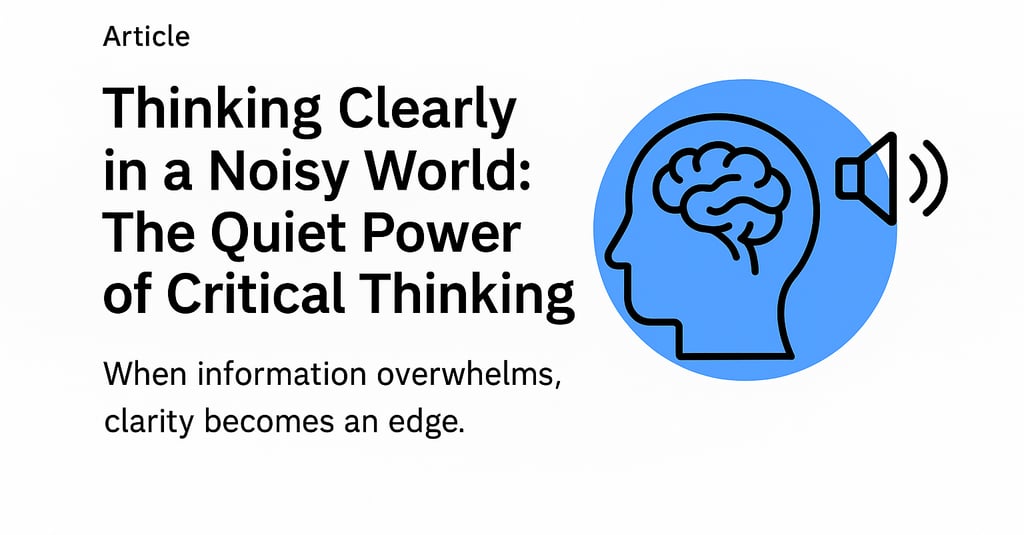Thinking Clearly in a Noisy World: The Quiet Power of Critical Thinking
When information overwhelms, clarity becomes an edge.
Andhika & Co. Insight Team
7/27/20252 min read


In an age of endless opinions and instant reactions, the rarest skill is the ability to think — clearly, calmly, and independently.
We live in the most connected era in human history. At any moment, we can access an ocean of perspectives, data, debates, and content. But with so much noise, a simple truth emerges:
More information doesn't always mean more clarity.
In fact, it can lead to confusion, bias, and rushed decisions.
This is where critical thinking steps in — not as an abstract academic concept, but as a vital everyday skill that shapes how we learn, decide, and lead.
What Is Critical Thinking, Really?
Critical thinking isn’t about being negative or cynical.
It’s not about overanalyzing everything or sounding intellectual.
At its core, it’s about asking better questions, challenging assumptions, and avoiding mental shortcuts. It means slowing down — not to doubt everything, but to see things more completely.
A critical thinker doesn’t accept things at face value.
They evaluate sources, test logic, and examine their own biases.
They’re open-minded, but not easily swayed.
Curious, but not careless.
Why It Matters Now More Than Ever
In a world of algorithms and hot takes, reacting is easy. Thinking is harder.
But the cost of poor thinking is real: misinformation, broken trust, bad decisions.
Whether you're consuming news, solving business problems, or navigating relationships — thinking clearly protects you from being swept up in hype, assumptions, or unexamined beliefs.
Companies need leaders who question flawed metrics.
Students need to sift through academic overload.
Communities need citizens who evaluate ideas — not just repost them.
Habits of Strong Thinkers
The good news? Critical thinking isn’t a trait — it’s a skill. And like any skill, it can be learned.
Here are four practical habits:
Pause before reacting
Ask: “What’s really being said here?” or “Do I have enough context?”Distinguish facts from claims
Look for data. Separate opinion from evidence.Listen to opposing views — actively
Not to attack, but to understand. The best ideas often sharpen through contrast.Follow principles, not just trends
Ask yourself: “Is this idea consistent with what matters most to me?”
Building a Culture of Better Thinking
Imagine if teams made decisions more carefully.
If meetings welcomed dissent.
If success was measured not just by speed — but by depth of reasoning.
That’s the power of a thinking culture.
Because behind every wise decision, every great product, and every sustainable strategy — there’s someone who took the time to think clearly.
Final Thought
In an attention economy, clarity is rare. But it’s not impossible.
By training our minds to slow down, ask better questions, and examine ideas with care — we build a quiet strength.
One that isn’t loud, flashy, or viral — but deeply effective.
And in a noisy world, clear thinking might just be the new superpower.

